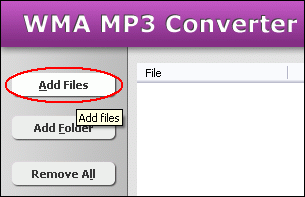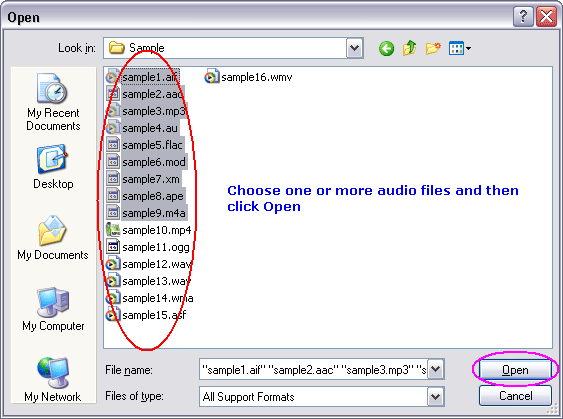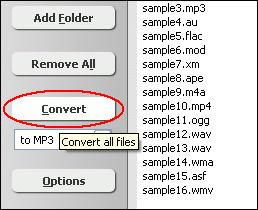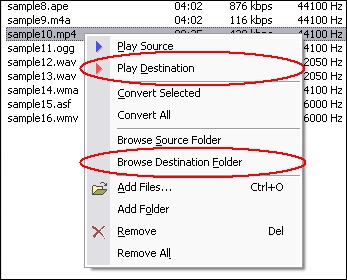AMR to ASFConvert AMR to ASF, AMR to ASF Converter |
 |
| Home | Getting Started | Download | Buy Now! | Screen Shots | FAQ | Support | Contact |
AMR to ASF Converter converts AMR to ASF. The software is an ALL-IN-ONE audio converter that supports more than 100 audio and video files. AMR to ASF Converter supports batch conversion and is full compatible with Vista and Windows 7.
What is AMR? Key Features:
What is ASF? ASF is based on serialized objects which are essentially byte sequences identified by a GUID marker. The format does not specify how (i.e. with which codec) the video or audio should be encoded; it just specifies the structure of the video/audio stream. This is similar to the function performed by the QuickTime, AVI, or Ogg container formats. One of the objectives of ASF was to support playback from digital media servers, HTTP servers, and local storage devices such as hard disk drives. The most common filetypes contained within an ASF file are Windows Media Audio (WMA) and Windows Media Video (WMV). Note that the file extension abbreviations are different from the codecs which have the same name. Files containing only WMA audio can be named using a .WMA extension, and files of audio and video content may have the extension .WMV. Both may use the .ASF extension if desired. ASF files can also contain objects representing metadata, such as the artist, title, album and genre for an audio track, or the director of a video track, much like the ID3 tags of MP3 files. It supports scalable media types and stream prioritization; as such, it is a format optimized for streaming. The ASF container provides the framework for digital rights management in Windows Media Audio and Windows Media Video. An analysis of an older scheme used in WMA reveals that it is using a combination of elliptic curve cryptography key exchange, DES block cipher, a custom block cipher, RC4 stream cipher and the SHA-1 hashing function. ASF container-based media is usually streamed on the internet either through the MMS protocol or the RTSP protocol. AMR to ASF Related Topics: OGG to ASF, VOC to ASF, VQF to ASF, RAM to ASF, RMI to ASF, MXF to ASF, SHN to ASF, M4R to ASF, M2A to ASF, AAC to ASF, MPA to ASF, MTM to ASF, MPC to ASF, RMJ to ASF, MOD to ASF, WAV to ASF, AWB to ASF, F4A to ASF, MO3 to ASF, AU to ASF, AC3 to ASF, NSA to ASF, RA to ASF, ADTS to ASF, OMA to ASF, CDA to ASF, EAC3 to ASF, ALAW to ASF, MMF to ASF, APE to ASF
|
| Home | Getting Started | Download | Buy Now! | Screen Shots | FAQ | Support | Contact | Links |
| Copyright © 2007-2014 Hoo Technologies All rights reserved. Privacy Policy |





